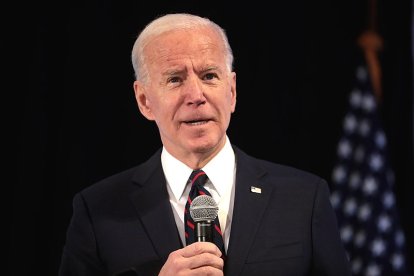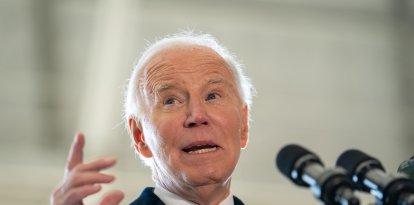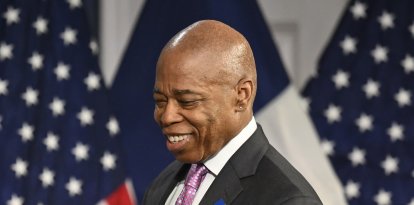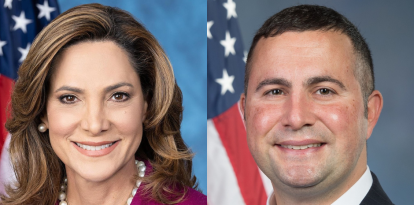New book recounts chaotic retreat from Afghanistan from within: "Through the window you could see scattered human remains"
The journalist Franklin Foer shared an excerpt from his new work: a chronicle of the process that marked the end of the longest war in the United States.

Joe Biden/Wikimedia Commons
"The Last Politician: Inside Joe Biden's White House and the Fight for America's Future" will be released next week. The author, Franklin Foer, editor of The Atlantic and former editor of The New Republic, chronicles the before and after of the famous withdrawal from Afghanistan, which took place on August 30, 2021. According to polls, the event doomed the president's popularity, and it has failed to recover since that fateful day.
The journalist shared a part of the writing in The Atlantic, detailing the process between the decision of the withdrawal, the withdrawal itself and the subsequent consequences.
In response to the September 11, 2001 attacks, the United States invaded the Middle Eastern country on October 7 of that year. Almost twenty years later, the Trump Administration had dated the withdrawal for May 21, always subject to the Taliban meeting the following conditions: engage in political negotiations with the Afghan government, refrain from attacking U.S. troops, and cut ties with terrorist groups. Biden made his decision public on April 14, from the same place where George W. Bush announced the invasion years ago. He pushed off the date set by his predecessor by a few months and established September 11 as the withdrawal date.
This provoked the reorganization of the Taliban, who soon took control of much of the country. "President Joe Biden and his advisers found themselves staring at the consequences of their decisions," Foer wrote of the days leading up to the withdrawal.
The author also highlights the experience of the current president as far as international relations go, and he mentions Biden's "arrogant faith in himself" when making decisions. "Diplomacy, in Biden’s view, was akin to persuading a pain-in-the-ass uncle to stop drinking so much," the author wrote. In the case of Afghanistan, the execution of the retreat had divided its two key men: Antony Blinken and Lloyd Austin. While the secretary of state shared the president's vision, the secretary of defense disagreed. The latter, as the author puts it, obeyed the orders that came from above like a soldier.
For Biden, exit was nonnegotiable
U.S. intelligence initially believed the Taliban could not take Kabul, the country's capital, until after the orderly withdrawal. However, as the date approached, the reports began to change. For example, Frank McKenzie, head of U.S. Central Command, warned in August 2021 that the city could be surrounded in about 30 days, a much faster collapse than previously anticipated. "McKenzie's dire warning did strangely little to alter the plans," Foer wrote in his book. The decision was set in stone.
With all this in mind, the Taliban forced an early withdrawal of U.S. forces. The rest is history: many died due to the seizure of cities, including those who tried to climb onto planes taking off in escape scenes that looked like something out of a movie.
"Only after the plane took off did the crew discover their place in history. When the pilot was unable to fully retract the landing gear, a crew member went to investigate, looking out a small window. Through the window you could see scattered human remains," Boer said. However, the White House managed to rescue some 124,000 people, which the author considered "the most successful airlift in history."
The president didn't like the media coverage very much. "So much of the commentary felt overheated to him. He said to an aide: ‘Either the press is losing its mind, or I am'", he wrote.
"Never forget that name. Never forget that face."
The harshest moment for the president came days later when he went to a private room where the relatives of the American soldiers who had died in the retreat were waiting for him.
"When Biden entered, he shook the hand of Mark Schmitz, who had lost his 20-year-old son, Jared. In his sorrow, Schmitz couldn’t decide whether he wanted to sit in the presence of the president. According to a report in The Washington Post, the night before, he had told a military officer that he didn’t want to speak to the man whose incompetence he blamed for his son’s death. In the morning, he changed his mind," Boer said.
"Schmitz told the Post that he couldn’t help but glare in Biden’s direction. When Biden approached, he held out a photo of Jared. “Don’t you ever forget that name. Don’t you ever forget that face. Don’t you ever forget the names of the other 12. And take some time to learn their stories.' 'I know their stories,' Biden responded."
RECOMMENDATION





















